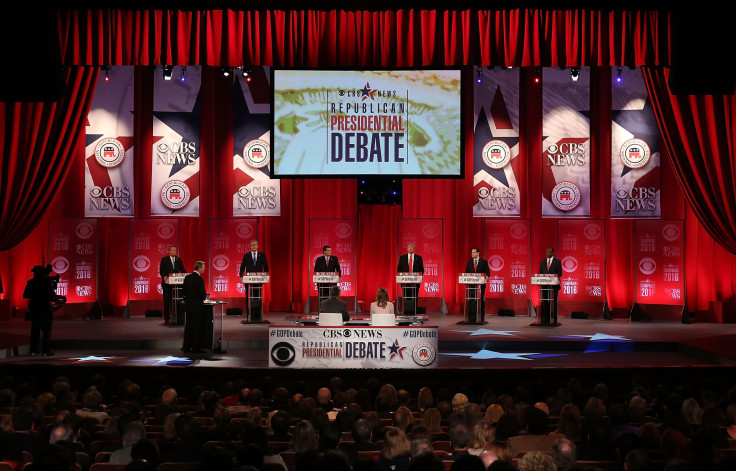GOP Debate: Republican Presidential Candidates Finally Get Questions On Wall Street

For the first time since November, a Republican presidential debate featured a question about Wall Street.
Though Democratic candidates have discussed at length the financial industry’s influence in Washington and criticized the role big banks played in the 2008 financial crisis, moderators did not ask a single question related to Wall Street in the Republican Party’s two most recent debates. During Saturday night’s event in South Carolina, CBS moderators asked two such questions — and one candidate defended his plan to raise taxes on financial managers.
Former Gov. Jeb Bush was asked to defend his proposal to raise capital gains taxes by eliminating the carried interest loophole. Under current law, hedge fund and private-equity managers pay a drastically lower tax rate than the vast majority of Americans, because their income is treated as capital gains.

CBS moderator Major Garrett pointed out that Americans for Tax Reform, a conservative think tank, opposes any plans to increase taxes on capital gains, and asked Bush if his proposal “would undermine not only that philosophy, but undercut your projection of 4 percent economic growth annually under your presidency.”
“Getting capital gains treatment is not appropriate. They should be paying ordinary income. That’s their business,” Bush said. He added: “It’s not the end of the world that private equity people and hedge fund folks that are right now getting capital gains treatment for the income they earn pay ordinary income like everybody else in this room. That’s not a problem at all.”
A recent study by the congressional Joint Committee on Taxation found that the lower tax rate on long-term capital gains is the government’s second-largest tax expenditure, and will cost the government $689 billion between 2015 and 2019. Bush is not the only Republican candidate who wants to eliminate the carried interest loophole: Real estate mogul Donald Trump has called for an end to the tax benefit
Later, neurosurgeon Ben Carson received a question more likely to come up in a Democratic presidential debate. CBS referred to Morgan Stanley’s $3.2 billion settlement with state and federal regulators over the sale of mortgage-backed bonds in the lead-up to the financial meltdown, and asked Carson if he believes that more financial executives should be held legally “responsible for crises” and if fines are an effective deterrent against bad behavior.
Though white-collar prosecutions have hit a 20-year low, Carson fired back that the real problem is that regulators are too aggressive.
“We have all these government regulators. All they’re doing is running around looking for people to fine, and we’ve got 645 different federal agencies and subagencies — way, way too many, and they don’t have anything else to do,” he said. “I think what we really need to do is start trimming the regulatory agencies, rather than going after the people who are trying to increase the economic viability of our society.”
Carson continued: “Now that doesn’t mean that there aren’t some people out there who are doing bad things. But I’m not sure that the way to solve that problem is by increasing all the regulatory burden. When you consider how much regulations cost us each year, $2 trillion. Per family, $24,000 per family. That happens to be the same level as the poverty level for a family of four. You want to get rid of poverty, get rid of all the regulations.”
© Copyright IBTimes 2025. All rights reserved.






















